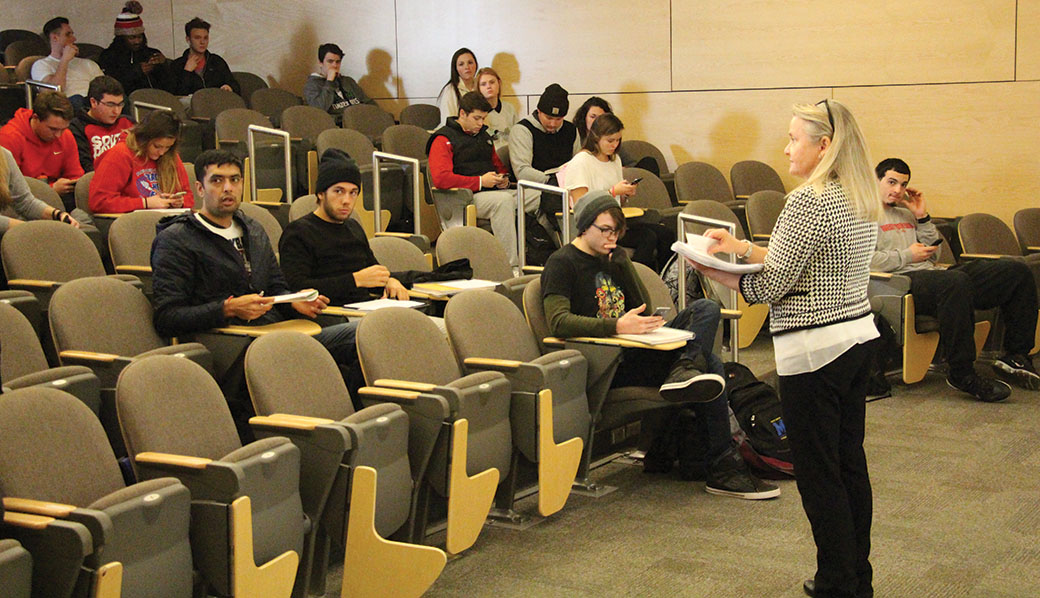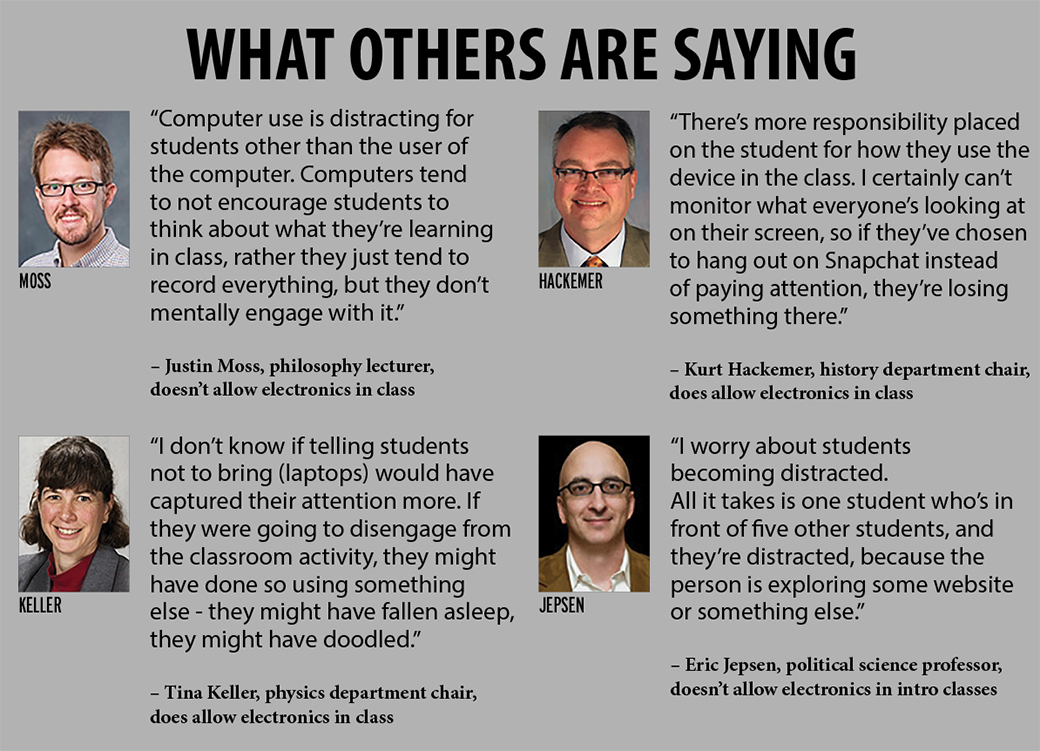
Professors reflect on policies barring electronics in classrooms
USD’s media and journalism department has formed a new informal policy barring students from using laptops and other electronic devices in class.
The policy is voluntary, and most media and journalism professors have chosen to take part.
Junior media and journalism major Kassidie Cornell said she was taken aback by the department’s decision to remove electronics from the classroom.
“I was actually really surprised when the policy came about, only because with media and journalism, it’s so technology-based nowadays,” Cornell said. “And I’m used to taking my notes on my laptop, so that was kind of a hard adjustment for me.”
Department chair Michelle Van Maanen said that while the policy is new, the problem of students engaging in non-school activities on their laptops isn’t. The problem has only gotten worse as time has gone by, she said.
“We had been discussing it informally and then a few times formally in our faculty meetings that it seemed to be a more noticeable problem in the last year or so,” Van Maanen said.
For Van Maanen and her fellow media and journalism professors, removing laptops from the classroom became a better alternative than looking the other way when when students used them improperly.
“I have seen people in the classroom who have been watching YouTube videos and you can really tell, even if you can’t hear them or they’re not being a disruption,” she said.
Students who use their laptops in class improperly, Van Maanen said, not only impact their own educational experience, but that of others.
“You start to see people in the rows behind them start to look over and you can tell. For my classes, I previously thought, ‘Well if they don’t want to pay attention, that’s what they are getting out of the class, they won’t do as well and that’s a decision that each student can make for themselves,'” she said. “What really bothered me is when students would come up to me and say someone near them was distracting because of their electronic device being used.”
Van Maanen said she doesn’t support this becoming a department, college or university-wide policy.
“I think it should be up to the individual professor or instructor because there are situations in my lab classes where I’ll actually ask people to use their cellphones,” she said.
Some students disagree, saying that preventing students from using electronics in the classroom doesn’t aid learning.
“I think it only allows professors to be worse teachers,” said Xavier Wright, a strategic communications major. “Because if they don’t have to fight for our attention then there is nothing pushing them to be a better instructor.”
Wright said he hasn’t been distracted by other students’ classroom technology use.
“I think we are all adult enough to make the decision to be present in class,” Wright said. “And I think this policy is unnecessary.”
Cornell added that this issue largely boils down to whether professors have faith in their students.
“It’s a matter of professors being able to trust their classes,” Cornell said. “From an individual standpoint, it’s like, if you want to succeed in that class, you pay attention and you get the better results, versus you fooling around on your laptop.”
Brendan Gayken, a sophomore media and journalism major, said he never saw the problems with laptops in the classroom as Van Maanen did.
“The thing is, I didn’t ever really see an egregious misuse of technology in the classroom before they instituted the policy,” Gayken said. “I never really saw an issue.”
While no departments on campus have a strict department wide policy on campus, some professors choose to ban the technology in their classes, for various reasons.
In general, Van Maanen said she hopes students will take professors’ motivations into account when they think of this policy.
“College is what you make of it,” she said. “I hope students understand why more professors have considered and implemented the policy and it will be interesting how widespread it will be on campus, if at all.”
Volante news editor Mason Dockter contributed to this story.
Correction: A previous headline for this article read “Media and journalism department no longer allowing electronics in classes.” This headline didn’t accurately reflect the department’s informal policy, as professors can choose to participate on a voluntary basis. The Volante regrets the error.



